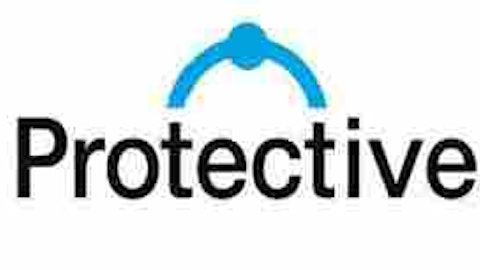Noah Poponak: Ashley, what — can you speak to the customer count growth that you are anticipating or embedding in your outlook for this year?
Ashley Fieglein Johnson: Yes. That’s a tough one to predict. And obviously, Sinergise brings a different element in terms of our ability to service smaller customers at greater scale or with greater efficiency. What really, I think, the relevant question is, how do we think about the — what part of our business is going to be coming from expansions within our base versus new business. Because I think in that sense, it’s really less about how many logos we are adding, but are we adding the right logos with the right opportunity to expand to set us up for continued growth next year. So I would expect the same type of growth where a lot of the growth is coming from expansion from these very large multimillion dollar deals from our existing customer base, complemented by continuing to bring on new customers that have this potential in some of — both the existing core markets like Cisco and events and intelligence as well as all these new commercial markets that Kevin outlined and then seeing those accounts just grow quarter after quarter.
Kevin, anything to add?
Kevin Weil: Yes, I agree with all of that. Just to maybe build on it for a second. At our last Analyst Day, Charlie Candy is our CRO, spent some time talking about how we are really trying to focus the use cases where we can deliver great ROI, improve economic outcomes, opportunities that we are going to then renew and expand. So there’s a lot of focus within the commercial team on saying no to good leads in order to say yes to the best leads. And that’s reflected in the pipeline numbers that you see here with 45 deals over $1 million in size.
Noah Poponak: I guess, I appreciate all of that, and that all makes a lot of sense. You want the right customers. You want sticky long-term, profitable, recurring customers, customers that can expand the wallet over time. But I guess on the other hand, just given where you are in the life cycle of the company and relative to the aspirations for longer term size of revenue base, why should I not be concerned with the somewhat slower customer count growth last year versus total revenue growth if I agree with everything you just said, but you need to have — still we need to have significant customer growth to get much better.
Will Marshall: Yes. No, I mean there’s no question that we need to continue that expansion of a number of customers. But again, we are focusing on the use cases that really work and expanding deals within the ones that we have, and that’s working really solidly. No doubt in the long-term, we have to get that. Yes, we believe that a lot of that sort of growth expansion will come from — with this as we get better and better on our platform side as well. So it’s really about focus as opposed to, I mean there’s a lot of opportunities, but we are now focusing on the ones that really makes most sense for now because we can get some really strong growth from them.
Ashley Fieglein Johnson: And I think we’ve also been very disciplined in our marketing spend. So we — as we talked to before, a lot of our pipeline is inbound. And we are just shifting this year to more leading and more into what we are seeing as market opportunity and investing more in our marketing. We’ve obviously got our Explore conference coming up where we will have a number of prospects. So it’s — that leading into the opportunity set that we see, but also making sure that we are always being very prudent with the amount that we are spending.
Noah Poponak: Okay. Ashley, is the — is your forecast now to be breakeven or positive EBITDA in fiscal ’25 for the year or just on a quarterly basis exiting the year?
Ashley Fieglein Johnson: The focus is on ensuring that we get to it at least on a quarterly basis in fiscal ’25.
Will Marshall: But as Ashley often says, we’ve got a lot of levers in here pushing the Pelican program faster or slower and things like this. And so a lot of that is in our control.
Noah Poponak: Okay. And I guess what’s the bridge between that or even the ’24 EBITDA and what the plan was during the SPAC process or is it really just that there’s kind of just a fine line at that tipping point of positive based on exactly where the revenue and margin lands in a given year?
Ashley Fieglein Johnson: Yes, I mean, obviously, the world is dramatically different than it was 2 years ago when we put our model out there. And I think we’re proud of the fact that we’ve been executing very well against those numbers. At this point, we are looking at both, the economic environment that’s in front of us. The really strong execution that we are seeing from the team, the opportunities to invest in new market opportunities and giving you the guidance that we have high confidence in.
Will Marshall: That’s right. I really, really believe Planet as a team is executing really well. And we continue to see this strong demand even on the commercial side, despite a little , of course in there and certainly on the government side as well. And so that’s why we are putting what we think is a very strong growth forecast, which we feel confident in delivering on this year.
Noah Poponak: Okay. And just one last one. Are there a lot of inorganic opportunities on the data analytics platform side within that effort? Or are those hard to find?
Will Marshall: Well, look, we said we would look always diligently around, and we will continue to be open to new acquisitions, but we are going to be very selective and very diligent and, frankly, mainly focused on our internal work for the time being.
Noah Poponak: Okay. Okay, thanks very much.
Will Marshall: Thanks, Noah.
Ashley Fieglein Johnson: Thank you, Noah.
Operator: Thank you, Mr. Poponak. The next question is from the line of Edison Yu with Deutsche Bank. You may proceed.





